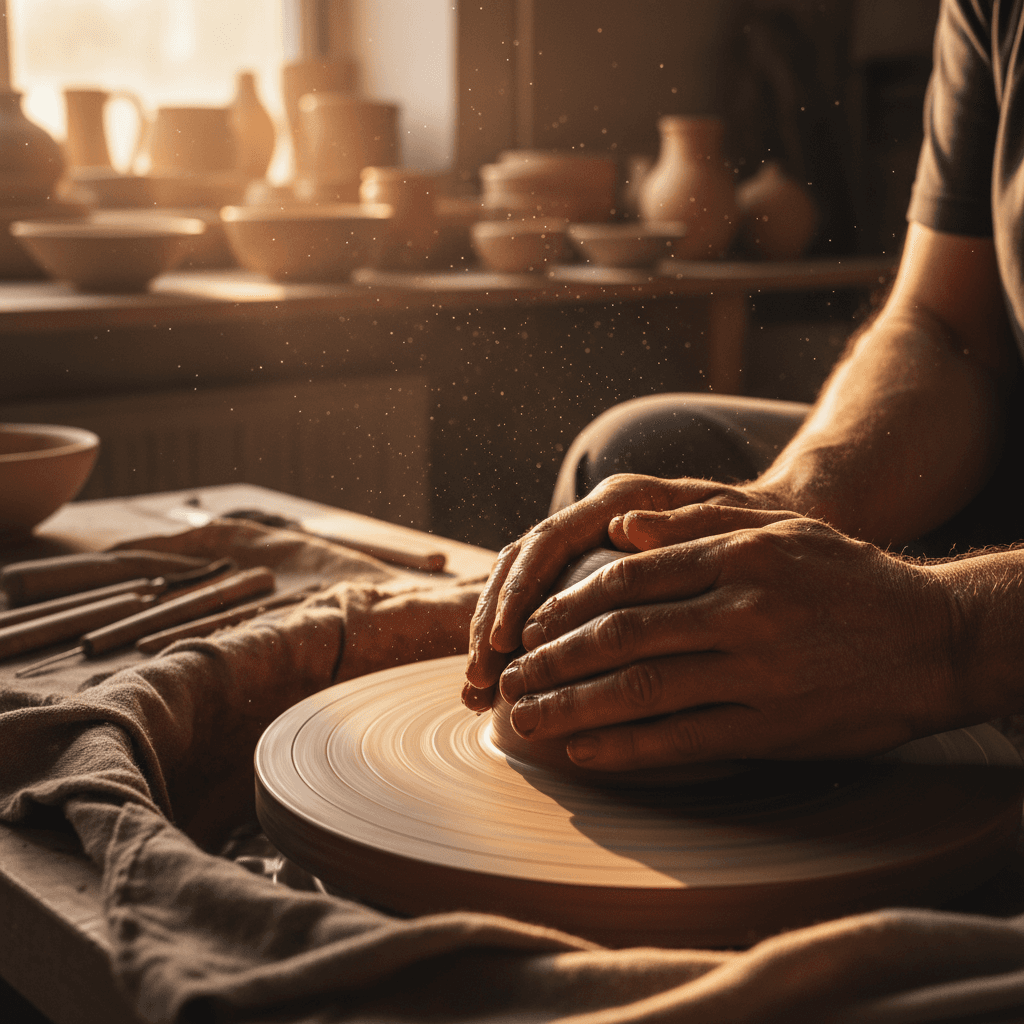Crafting the Mind with Stoic Patience and Bold Care

Shape your thoughts like a craftsman shapes clay: patiently, boldly, with care. — Marcus Aurelius
Thought as Malleable Material
To begin, the metaphor treats thinking as a craft, not a passive stream. Just as clay takes the form the artisan intends, the mind assumes the shape of the attention we give it. Marcus Aurelius captures this pliability when he notes, "The soul becomes dyed with the color of its thoughts" (Meditations 5.16). The implication is empowering: deliberate mental habits tint character as surely as pigments saturate clay.
Patience: Turning the Wheel Slowly
From this foundation, patience becomes the potter’s steady wheel. Craftspeople wedge clay to expel air bubbles; likewise, the Stoic repeatedly examines impressions, pushing out rash judgments before they harden. The practice is called prosoche—attentive presence—achieved through daily review and gentle correction. Over time, this slow rhythm refines judgment without self-reproach, much like smoothing a vessel, pass after pass, until the surface holds its line.
Boldness: Cutting Away the Excess
Yet patience alone is not enough; shaping also requires bold, decisive cuts. Marcus advises doing less but doing what is essential, which "brings a double satisfaction: doing things better" (Meditations 4.24). In the studio, a firm wire slice removes a heavy lump that distorts the form. In the mind, boldness is the courage to sever an unhelpful belief, a needless worry, or a performative obligation—so the inner shape can stand true.
Care: Finishing for the Common Good
Moreover, care ensures the vessel serves its purpose. For Marcus, care is ethical as much as technical: what benefits the whole must guide the individual. His image is communal—"What is not good for the beehive is not good for the bee" (Meditations 6.54). Thus, careful thought considers consequences beyond the self, refining motives the way a craftsman burnishes a rim, so lips will find it kind and fit to use.
Obstacles as Raw Material
In the same vein, Stoicism treats setbacks like stubborn clay: resistant, but useful when handled well. Marcus’s principle that "the impediment to action advances action" (Meditations 5.20) reframes friction as form-giving pressure. A collapsed wall can be re-thrown thicker; a failed plan can be redesigned simpler. Each obstacle becomes structural clay—something to grip, shape, and integrate—rather than waste to be resented.
Daily Rituals of the Workshop
Consequently, the art lies in routine, not drama. Marcus wrote private notes—his Meditations—during campaigns in the 170s CE, using brief morning and evening reflections as a mental workshop. Like prepping tools and cleaning the bench, these rituals keep the mind ready for work. Over days and seasons, the wheel turns, the hands learn, and the vessel—character—emerges: patient in method, bold in edits, and finished with humane care.